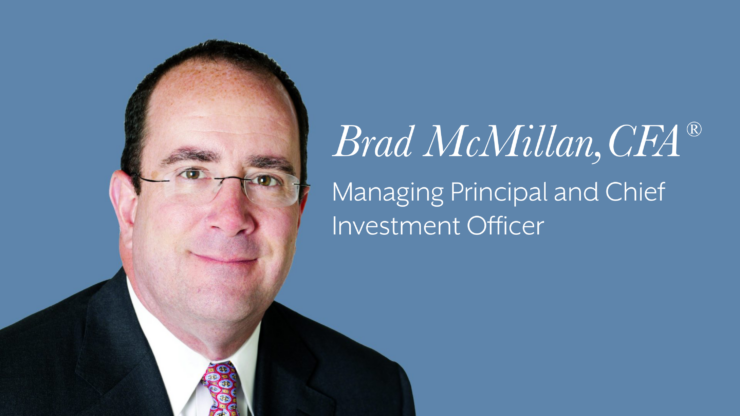
Invest with purpose for the
things that matter
Your Life.
Well Planned.

Diversify with alternative investments

Tax-efficient investment portfolios

Seek optimal risk-adjusted performance

Smart Investing for a Better Future
Using both passive and active traditional equity and fixed-income instruments, in combination with exclusive alternative investment managers, our time-tested strategies are designed as all-weather portfolios so you can feel confident that your portfolio is well-diversified and with the aim of turning your dreams into reality.
Strength in Numbers
(as of 02/2024)
(as of 02/2024)
Thoughtfully Crafted Portfolios





Screening

We identify opportunities through an assessment of macro and micro-economic trends and narrow down the investment universe.
Investment Analysis

We analyze investments using objective quantitative statistics and metrics, as well as various qualitative factors.
Fundamental Research

This step focuses on the five Ps – philosophy, process, people, price, and performance – to gain an in-depth understanding of the fund, the manager, or the partnership.
Portfolio Construction

After being thoroughly researched, potential investments are proposed to the investment committee and must stand up to a rigorous review and Q&A process before being added to your portfolio.
Ongoing Monitoring

Your portfolio is monitored and reviewed on an ongoing basis to determine if it is meeting its investment objective. The portfolio will be rebalanced as necessary to keep asset weightings in line with your objectives and risk tolerance.
Investment Opportunities to Fit Your Every Need

Traditional Equity and Fixed Income Investments
To capitalize on markets that are efficient, we believe using low-cost, passive investments can help optimize your portfolio by keeping fees low with an aim of minimizing potential tax consequences and risks. Alternatively, in parts of the market where there are inefficiencies, a skilled, active portfolio manager can capitalize on opportunities beyond the typical index fund.
Stocks
Investing in publicly traded companies can increase the growth potential of your overall portfolio. To properly diversify your investments, we believe any prudent stock portfolio should be invested in large, mid, and small-cap companies from all around the globe.
Bonds
Depending on your risk tolerance, adding bonds to your portfolio can preserve what you’ve worked hard to save while providing a steady income stream. Investing in a combination of corporate, government, and, depending on your tax bracket, municipal bonds, may be part of a diversified fixed-income portfolio.
Alternative Investments
For accredited investors, we can provide access to exclusive private investments typically reserved for endowments, foundations, and ultra-high-net-worth investors. We utilize alternative investments for portfolio diversification and potentially reduce overall investment risk, as they tend to have a low correlation with traditional assets. Alternative investments include top-tier private equity and venture capital managers, private credit, private real estate, and long/short equity to name just a handful of potential investment opportunities.*
*Bonds are subject to availability and market conditions; some have call features that may affect income. Bond prices and yields are inversely related: when the price goes up, the yield goes down, and vice versa. Market risk is a consideration if sold or redeemed prior to maturity. Diversification does not assure a profit or protect against loss in declining markets, and diversification cannot guarantee that any objective or goal will be achieved. Investing in alternative investments may not be suitable for all investors and involves special risks, such as risk associated with leveraging the investment, utilizing complex financial derivatives, adverse market forces, regulatory and tax code changes, and illiquidity. There is no assurance that the investment objective will be attained.

Gary and the WAM team went beyond offering investment advice by truly getting to know our family. This friendship truly enabled the WAM team to personalize our navigation through our working years and now into retirement. Consequently, we have met and exceeded our financial goals, we are living our best dreams, and we are secure in our vision for our latter years. Thank you, Gary and WAM!
The Advisors of Williams Asset Management are Fiduciaries.
While many advisors will claim to have your best interest at heart, unless they operate as a fiduciary, they are not held to a legal standard to do so. As fiduciaries, the independent investment advisors at Williams Asset Management have a legal and ethical responsibility to serve clients with steadfast integrity and put their client’s interests first.
The role of being a fiduciary not only pertains to our role as your investment advisor but also as your financial planner. Since all advisors at Williams Asset Management are CERTIFIED FINANCIAL PLANNER™ professionals, in addition to the aforementioned Securities and Exchange Commission’s definition of a fiduciary for investment management, we must abide by rules set by the CFP® Board of Standards for financial planning.

Duty of loyalty
Representing trust, integrity, and a fiduciary’s duty to act in the best interests of clients.

Duty of care
Signifying protection and the responsibility to safeguard clients’ interests through careful decision-making and risk management.

Duty of skill, and diligence
Depicting the diligence and timely execution of tasks, emphasizing the importance of being proactive, responsive, and dedicated to clients’ needs.

Client-centered advice
Representing guidance, navigation, and the commitment to provide tailored advice that aligns with clients’ best interests, helping them achieve their financial objectives.


